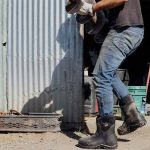Proposals aimed at speeding up voluntary recalls of potentially unsafe products would have the opposite effect, according to comments submitted to the Consumer Product Safety Commission (CPSC) last week by several people in or representing the sporting goods industry.
Under provisions of the Consumer Product Safety Act, companies can negotiate a voluntary corrective action plan with CPSC staff that enables them to recall products even before there are any reports of a safety hazard. In exchange, companies are allowed to disclaim in their recall notices that they are not admitting to any product defects or violations of law. The process is meant to encourage companies to be proactive while saving the CPSC the time and expense of bringing a formal complaint before an administrative law judge.
Bicycle and outdoor equipment vendors are among the more frequent users of voluntary recalls. In late December, 2013, for instance, Specialized Bicycle Components, Inc. recalled about 173 bicycles after learning screws in their front hubs can loosen and pose a fall hazard. About three weeks later, Mammut Sports Group Inc recalled 144 units of its RescYou crevasse rescue device after discovering it might not lock securely. In both instances, neither company had received any reports of such incidents or any injuries.
In November, 2013, however, CPSC proposed a new rule in response to a request from Congress that the voluntary program be updated to reflect change to the mandatory recall program made in 2010 in the wake of several high profile product recalls. Among other things, the proposed rule would:
- allow CPSC staff to impose corrective action plans on companies that have engaged in multiple previous voluntary recalls and/or violations over a relatively short period of time;
- make such plans legally binding; and
- allow CPSC to negotiate what disclaimers a company inserts into a voluntary recall notice.
During a public comment period that ended Feb. 4, several trade groups wrote CPSC Commissioner Todd Stevenson to argue that the proposal contradicts the entire purpose of voluntary recalls, which is to shield manufacturers from liability to expedite product recalls that could prevent injuries or even death. In fact, the changes would dramatically reduce participation in the “voluntary” program, several argued.
“To subject companies, especially small manufacturing firms (many of which make up most of the gear companies in the markets serving outdoor, bike, ski, boat, arbor and fire and who are providing growth to the economy), to be legally bound to corrective actions could prevent them from going public with voluntary recalls in the first place,” argued a Feb. 3 letter written by Carol Brodsky, president and founder of Sterling Rope Company. “Legally binding compliance programs on voluntary recalls, open up the doors for penalties and litigation over the question of alleged violations of the terms of the corrective action plan, not just the defective product.”
Expanding corrective action plans to address the adequacy of a company’s internal compliance programs would greatly complicate negotiations, delay recall notices and enmesh CPSC staff in arcane discussions of such fluid topics as international standards and global sourcing options, according to several critics.
Alex Boian, senior director of government affairs for Outdoor Industry Association, said the proposed rule could have a chilling effect on innovation by forcing the small businesses that are the foundation of the outdoor industry to divert their resources from product innovation to hiring attorneys.
Finally, the proposal undermines the collaborative nature of the relationship between businesses and the CPSC that the voluntary recall program has nurtured.
“Voluntary recalls should be encouraged, not counted as a black mark against recalling companies,” states a Feb. 4 letter submitted by counsel for the Bicycle Product Suppliers Association. “Indeed, it could be argued that manufacturers that volunteer to conduct safety recalls in cooperation with the CPSC are more likely to have effective programs for detecting and addressing potential safety issues than firms that rarely or never conduct recalls. Yet, this proposal would seek to tally a firm’s voluntary recalls and seek to place firms on a form of probation (i.e. subjecting them to a CPSC-supervised “compliance plan”) if their tally exceeds some unspecified level. Not only is this unfair to the firms that have cooperatively addressed product issues, but it will also strongly discourage firms from offering to conduct recalls in close cases (such as where there is no identifiable defect and only a small number of field incidents). This is bad public policy.”















